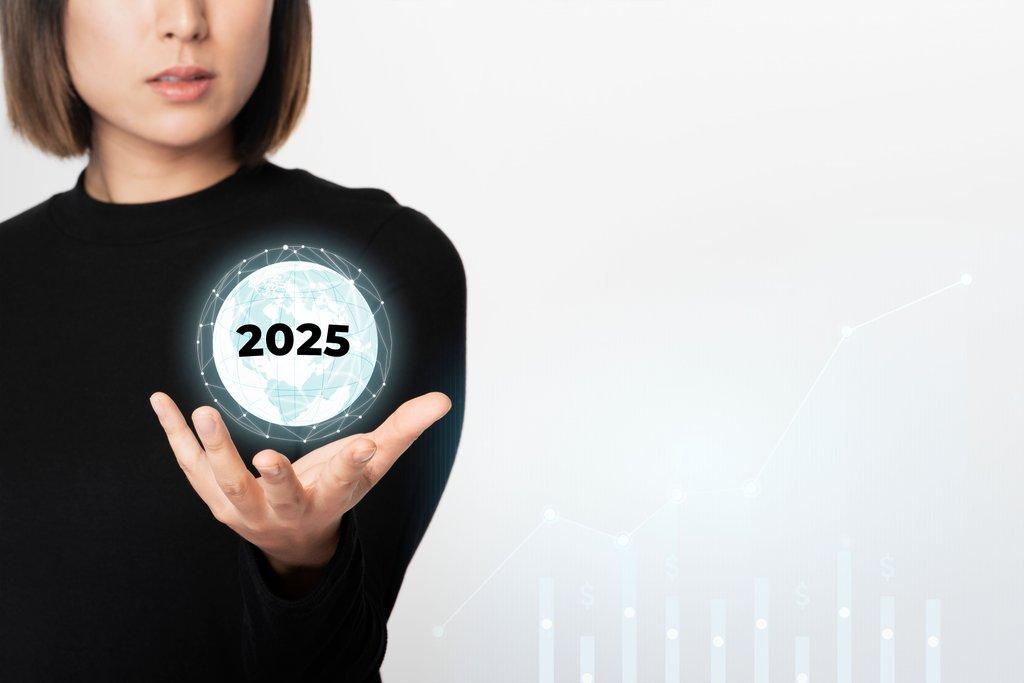Future Trends in ERP Systems: What to Expect in 2025 and Beyond
Dive into the future of ERP in 2025 and uncover the innovations set to transform your business.
 What’s Next for ERP? Dive Into the Trends That Are Changing the Game!
What’s Next for ERP? Dive Into the Trends That Are Changing the Game!
Enterprise Resource Planning (ERP) systems is transforming at a rapid pace. Businesses are increasingly relying on ERP solutions to streamline operations, enhance decision-making, and improve overall efficiency. In this blog, we explore the key trends shaping the future of ERP systems, helping organizations stay ahead in a fast-evolving marketplace.
1. Cloud-Based ERP Solutions on the Rise
Cloud-based ERP solutions are no longer just an option-they're becoming the standard. Businesses of all sizes are drawn to the scalability, flexibility, and cost-effectiveness of cloud ERP. For those looking for even more control, hybrid models that combine on-premises and cloud functionalities are also gaining popularity. This shift not only reduces IT overhead but also provides seamless accessibility, enabling teams to work from anywhere. The days of traditional on-prem ERP systems are fading fast.
2. Artificial Intelligence: The Game Changer
Around 65% of organizations believe that AI is critical to their ERP systems, with nearly 40% stating that AI is an important consideration for their ERP investments. AI is transforming ERP systems by enabling advanced features like predictive analytics for demand forecasting, automating routine tasks, and providing intelligent recommendations that enhance decision-making. AI-driven ERP systems help businesses uncover deeper insights into their operations, optimizing processes and driving greater efficiency across departments.
3. Mobile ERP: Work from Anywhere, Anytime
With remote work becoming the norm, mobile accessibility is more important than ever. ERP applications are evolving to provide a seamless, intuitive experience on mobile devices. Whether you're approving an invoice, checking inventory levels, or making a decision based on real-time data, mobile ERP ensures you're never out of the loop. Mobility means agility, and agility allows your workforce to react faster to changes, keeping your operations running smoothly.
| According to a 2023 survey of retailers, manufacturers, and distributors, businesses that partnered with a software consultant to implement their new ERP saw an impressive 85% success rate. Ready to find your perfect ERP partner? Check out our blog to learn more. |
4. IoT Integration: Smarter Operations in Real Time
The Internet of Things (IoT) is making its mark on ERP systems, allowing businesses to collect real-time data from connected devices. Imagine tracking every asset in your supply chain with real-time data or analyzing customer behavior to improve services. IoT integration enables smarter, data-driven decision-making and helps boost operational efficiency by connecting every part of your business, giving you a complete view of your operations.
| Read our blog to learn more about how you can stay ahead in this rapidly evolving landscape with IoT. |
5. Cybersecurity: Securing Your ERP
As ERP systems store critical business data, strengthening cybersecurity is a top priority. Future ERP solutions will incorporate enhanced security measures and comply with global regulations to protect against cyber threats. From data encryption to multi-factor authentication, cybersecurity advancements will ensure businesses can safeguard their critical information while maintaining customer trust. These protections are essential to securing sensitive information and maintaining regulatory compliance.
6. Sustainability: Green ERP is on the Horizon
Sustainability isn’t just a buzzword-it’s a business imperative. More companies are looking for ERP solutions that support environmentally sustainable practices, from energy management to resource optimization. As organizations focus on reducing their carbon footprint and enhancing corporate social responsibility, ERP systems are evolving to support these goals. Expect to see more "green" ERP solutions designed to help companies align with global sustainability standards.
7. Industry-Specific ERP Solutions
One-size-fits-all ERP solutions are becoming a thing of the past. The future belongs to industry-specific ERP systems tailored to meet the unique needs of sectors like manufacturing, healthcare, and retail. These specialized solutions offer features and workflows designed specifically for the challenges and opportunities within each industry. This shift means that businesses can now implement ERP systems that are a true fit for their sector, driving higher efficiency and better results.
| Boost Warehouse Efficiency with QCS's Custom ERPNext Solution. Find out more. |
8. Composable ERP: Build as You Grow
The rise of composable ERP is changing the way businesses think about their systems. Instead of relying on a rigid, all-in-one solution, composable ERP allows organizations to assemble various software components as needed. This modular approach enables businesses to respond quickly to market changes, challenges, or opportunities by adding or updating components as required. It offers flexibility and scalability, making it easier for companies to adapt to evolving business landscapes.
Conclusion
The future of ERP systems is one of innovation, flexibility, and smarter business operations. As organizations embrace trends like cloud-based solutions, AI integration, mobile accessibility, IoT connectivity, enhanced cybersecurity, sustainability, industry-specific solutions, and composable ERP, they’ll unlock new levels of efficiency and growth. Staying ahead of these trends will be key for businesses looking to thrive in the evolving digital landscape.
| Ready to future-proof your business with the latest ERP innovations? Connect with QCS today and discover how we can help you leverage cutting-edge ERP solutions tailored for success in 2025 and beyond! |
Deepa Ramachandran
Juggling tech trends, art projects, and a love for storytelling—let’s explore it all together!

No comments yet. Login to start a new discussion Start a new discussion